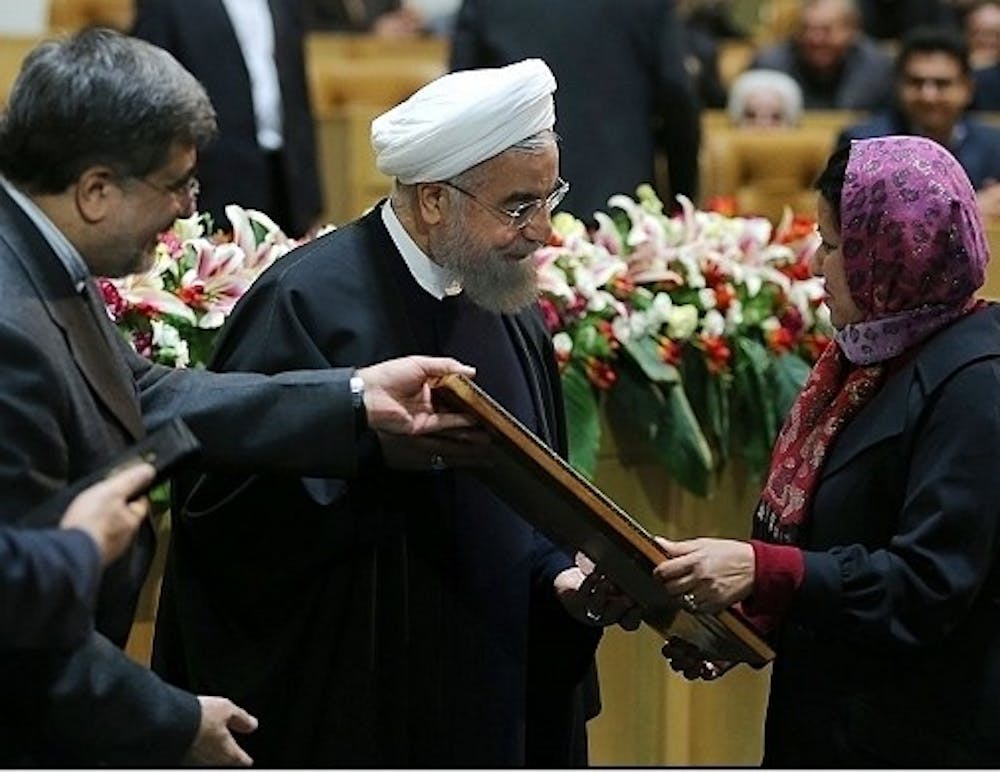Afsaruddin traveled to Tehran, Iran, to accept the Jayezeh Jahani, also known as the World Book Prize, from Iran’s president ?Hassan Rouhani.
She was among nine other scholars who were honored Feb. 8 at the ?Summit Conference Hall.
Afsaruddin is a faculty member at the School of Global and International Studies and was honored for her book “Striving in the Path of God: Jihad and Martyrdom in ?Islamic Thought.”
The book discusses the various meanings of jihad and the common misconceptions surrounding ?the term.
Other recipients of the World Book Prize included scholars from Yale and Harvard universities. Winners were selected from more than 1,700 nominees from around the world.
“Someone else nominated me. I wasn’t even aware of this award, frankly speaking,” said Afsaruddin, chair and professor of the Department of Near Eastern Languages and Cultures, in the press release.
Afsaruddin found out about the award in ?January.
“This was an eye-opener in many ways,” she said in the press release. “I was very happy to see how receptive they were to my book, the ideas it represented and their willingness to engage them.”
Afsaruddin uses her research and public work to fight against anti-Islamic sentiment in the country, according to the press release. The day after receiving the award, she also met with a panel of scholars of Islamic studies.
“I think I helped them to realize that there are many more aspects to jihad to consider,” Afsaruddin said in the release. “Most people look at it through a legal lens and in the context of international relations, where jihad has a very specific meaning. But we discussed, for example, some of the Quranic verses that are treated in great detail in my book. They said that it helped them become aware of the various contested interpretations that sprang up ?over time.”
Since returning to IU, Afsaruddin has begun to consider translating her book into Arab and Persian languages.
“I would like for this book to become better -known in other Muslim countries, as well, but to do that, the book would have to be available in the indigenous languages,” she said in the release.
Alison Graham






